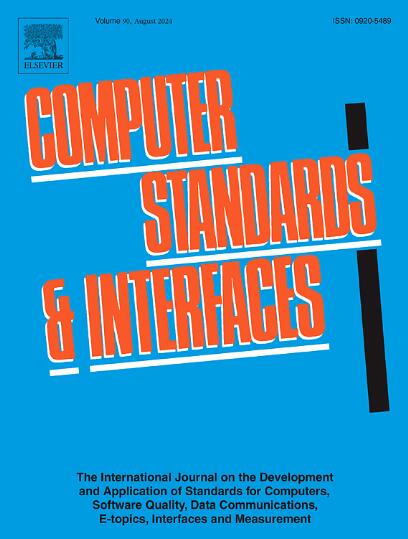Lattice-based dynamic decentralized anonymous credential scheme supporting batch verification
IF 4.1
2区 计算机科学
Q1 COMPUTER SCIENCE, HARDWARE & ARCHITECTURE
引用次数: 0
Abstract
Anonymous credentials allow users to obtain credentials while protecting their privacy, which have significant application value in digital identity management systems. Anonymous credential schemes based on post-quantum assumptions mainly rely on a central issuing authority. Once the central server encounters single point of failure, it will cause the entire system to crash. The high computational complexity of credential verification algorithm severely restricts system scalability in high-concurrency identity management scenarios. More critically, existing schemes generally lack non-interactive batch verification algorithm, resulting in linear growth of verification time with the number of credentials when handling large-scale requests. Constructions relying on multiple fixed issuers to issue credentials in a decentralized manner have been proposed. Given that fixed issuers could not adapt to complex and changing network environments, we present a lattice-based decentralized anonymous credential system that supports dynamic changes in issuers to enhance system robustness. By introducing an innovative threshold signature, our system flexibly accommodates the joining or leaving of issuers for various reasons. Meanwhile, the system enables dynamic adjustments of thresholds without reset. By utilizing an efficient cryptographic accumulator, the system supports batch verification of credentials without revealing their contents. Experimental results demonstrate that our system outperforms previous systems in terms of performance. It is worth noting that our batch credential verification algorithm achieves constant time cost, independent of user’s credential size.
支持批验证的基于格的动态去中心化匿名凭证方案
匿名凭证允许用户在获取凭证的同时保护其隐私,在数字身份管理系统中具有重要的应用价值。基于后量子假设的匿名证书方案主要依赖于一个中央颁发机构。一旦中央服务器出现单点故障,就会导致整个系统崩溃。在高并发身份管理场景下,证书验证算法的高计算复杂度严重制约了系统的可扩展性。更为关键的是,现有方案普遍缺乏非交互式批验证算法,导致在处理大规模请求时,验证时间随凭据数量线性增长。已经提出了依赖多个固定发行者以分散的方式颁发证书的结构。鉴于固定的发行者无法适应复杂多变的网络环境,我们提出了一种基于格子的去中心化匿名证书系统,支持发行者的动态变化,以增强系统的鲁棒性。通过引入创新的门槛签名,我们的系统可以灵活地适应发行者因各种原因加入或离开。同时,系统可以动态调整阈值而不复位。通过使用高效的密码累加器,系统支持对凭证进行批量验证,而不会泄露其内容。实验结果表明,我们的系统在性能方面优于以往的系统。值得注意的是,我们的批量证书验证算法实现了恒定的时间成本,与用户的证书大小无关。
本文章由计算机程序翻译,如有差异,请以英文原文为准。
求助全文
约1分钟内获得全文
求助全文
来源期刊

Computer Standards & Interfaces
工程技术-计算机:软件工程
CiteScore
11.90
自引率
16.00%
发文量
67
审稿时长
6 months
期刊介绍:
The quality of software, well-defined interfaces (hardware and software), the process of digitalisation, and accepted standards in these fields are essential for building and exploiting complex computing, communication, multimedia and measuring systems. Standards can simplify the design and construction of individual hardware and software components and help to ensure satisfactory interworking.
Computer Standards & Interfaces is an international journal dealing specifically with these topics.
The journal
• Provides information about activities and progress on the definition of computer standards, software quality, interfaces and methods, at national, European and international levels
• Publishes critical comments on standards and standards activities
• Disseminates user''s experiences and case studies in the application and exploitation of established or emerging standards, interfaces and methods
• Offers a forum for discussion on actual projects, standards, interfaces and methods by recognised experts
• Stimulates relevant research by providing a specialised refereed medium.
 求助内容:
求助内容: 应助结果提醒方式:
应助结果提醒方式:


